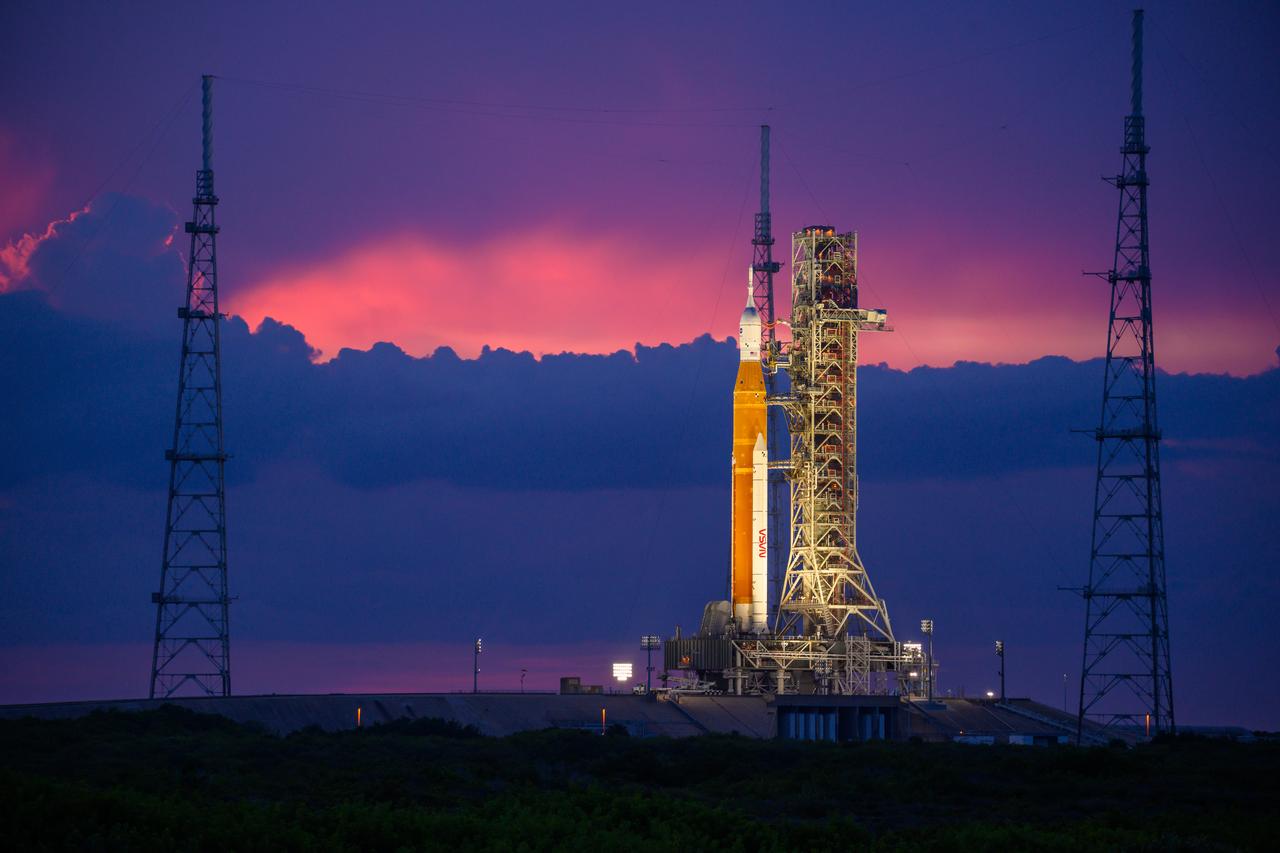Nasa forced to cancel latest Artemis launch attempt due to rocket leak
The failed launch marks the second time the space agency has had to halt the mission

Nasa has postponed its attempt to go back to the moon – again.
Yet another hydrogen leak forced the space agency to abandon its plans to launch its Artemis-1 mission on Saturday afternoon.
Engineers tried repeated tricks to force the leak to seal, with a variety of different plans over hours, but Nasa eventually abandoned the attempt. Launch director Charlie Blackwell-Thompson made the final decision to postpone the launch around 11.15am local time, roughly three hours before the rocket had been scheduled to lift off.
Nasa had already been forced to “scrub” a previous attempt to launch its rocket on Monday. That was also the result of a separate hydrogen leak.
The space agency did not immediately announce when it would attempt to launch the rocket again. While it has another launch window open on Monday evening, it could be forced to roll the rocket back into its assembly building – which could lead to a delay of weeks or even months.
The scheduled launch will see test dummies sent up and around the moon, before falling back down to Earth around 42 days later. A successful test is required before Nasa sends humans in the rocket, with a view to sending them around the moon in 2024 and onto the lunar surface in 2025.
But the repeated, separate issues with hydrogen leaks on Nasa’s new Space Launch System (SLS) recalled the difficult period of the Space Shuttle, which was eventually cancelled and left the space agency without the capability to launch its own astronauts for years.
Subscribe to Independent Premium to bookmark this article
Want to bookmark your favourite articles and stories to read or reference later? Start your Independent Premium subscription today.

Join our commenting forum
Join thought-provoking conversations, follow other Independent readers and see their replies